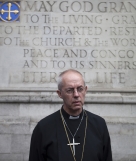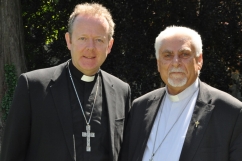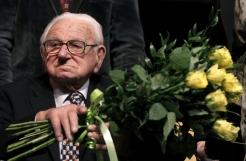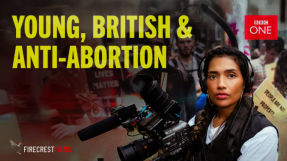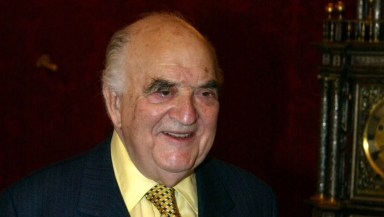
Inspired by the Christians who helped him as a young refugee from the Nazis, a Jewish peer is now spearheading a rescue mission for Christians in the Middle East.
Austrian born, Lord Weidenfeld fled to Britain to escape Nazi occupation in 1938, and was taken in by members of the Plymouth Brethren. Without their kindness he says he wouldn't have survived, and now believes he has a "debt to repay".
"It applies to so many of the young people who were on the Kindertransports. It was Quakers and other Christian denominations who brought those children to England," he told The Times.
"It was a very high-minded operation and we Jews should also be thankful and do something for the endangered Christians."
The 95-year-old is part funding Operation Safe Havens, a Barnabas Fund initiative which hopes to help resettle some 2,000 Middle Eastern Christians. Last week, the first flight under the project took 150 Syrian Christians to Warsaw in Poland.
"The primary objective is to bring the Christians to a safe haven," Weidenfeld explained.
However, though he says he has received "very generous offers of help" from some Christian groups in the US, the Obama Administration has refused to take part over concerns of discrimination against other refugees.
While Christians have suffered persecution at the hands of Islamic State in Iraq and Syria and have fled the Middle East in their droves, so too have other religious minorities, including the Yazidis and Shia Muslims.

"I can't save the world, but there is a very specific possibility on the Jewish and Christian side," Weidenfeld said in response to the criticism. "Let others do what they like for the Muslims."
He said the brutality of ISIS was unmatched, even compared to the Nazis, who he described as "more sophisticated".
"When it comes to pure lust for horror and sadism, they [ISIS] are unprecedented. There never was such scum as these people," he said. He added that he was "appalled by the lack of action" by international governments to address the situation.
"My main concern is — and this is terribly important for me as a member of the generation that can look back to the time before World War Two — the lack of will to defend oneself; to get boots on the ground and to get rid of these people. The lack of desire to fight the enemy, to slay the dragon in his lair," he said.
"The brave Kurds have shown in the battle for Kobani that you can defeat them. In a disunited world, the road is wide open for the terrorists."










